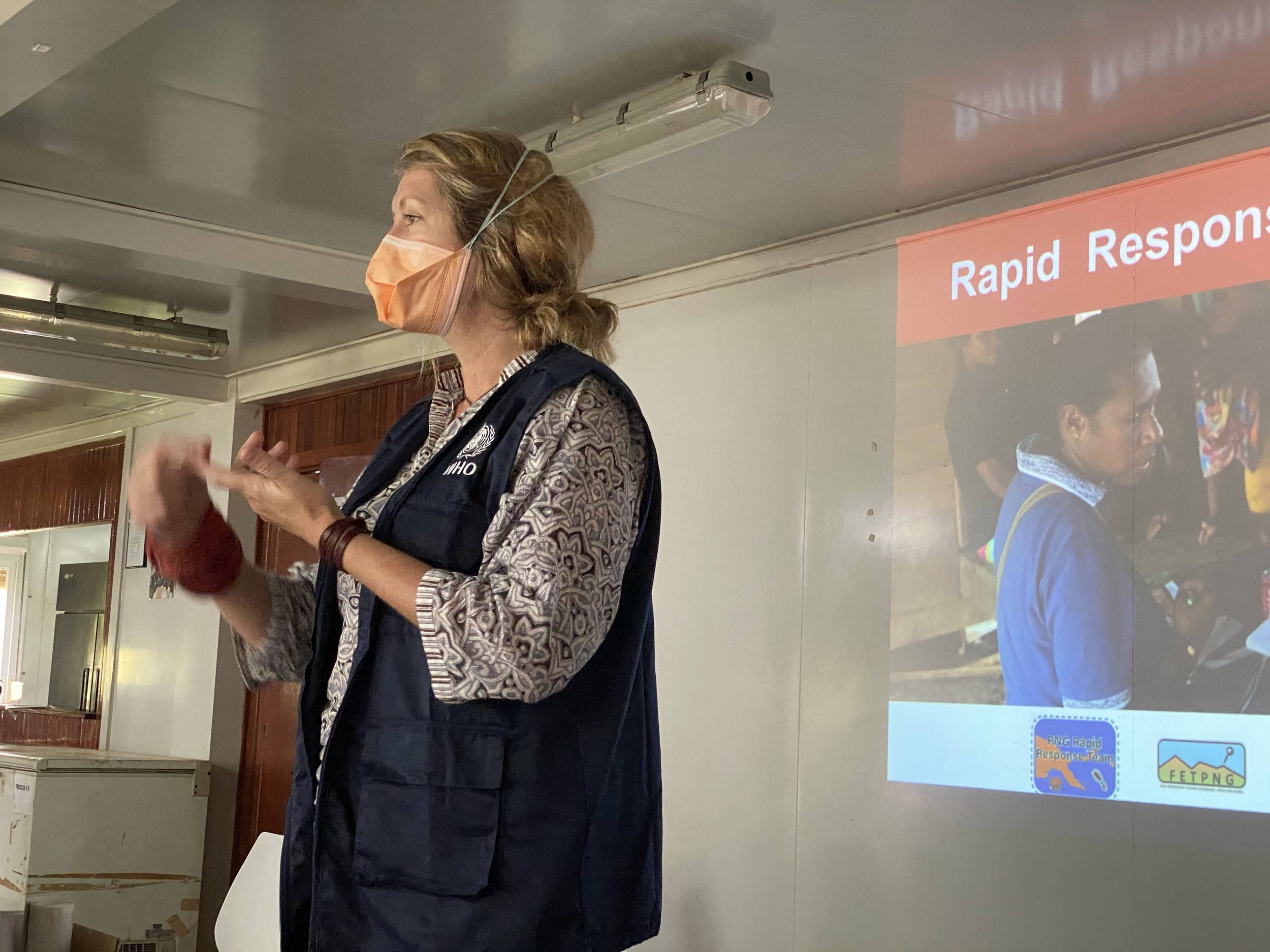WHO WE ARE
Field Epidemiology in Action are a multidisciplinary team, including epidemiologists, veterinarians, educators, anthropologists, and researchers, with a passion for international development and public health. We are part of the University of Newcastle’s School of Medicine and Public Health and are primarily funded through DFAT’s Australian Aid program.
A Brief History
While we weren’t known as Field Epidemiology in Action (FEiA) then, we have grown from support provided to various field epidemiology training initiatives across the Pacific since 2013. This includes our engagement with the original Field Epidemiology Training Program of Papua New Guinea, the intermediate FETPNG. Training its first cohort in 2013, in 2014 FETPNG convenors engaged epidemiologists and public health physicians from Hunter New England Local Health District (HNE) to support training delivery and mentorship of fellows. With feedback from FETPNG graduates indicating a desire for ongoing training, together with Papua New Guinea’s National Department of Health we partnered on the Accelerating the Development of Evidence-based Policy and Practice (ADEPPt) project. Funded by the Australian Government’s Department of Foreign Affairs and Trade (DFAT) and housed at the University of Newcastle with leadership from the HNE team, ADEPPt (2018-2022) developed an advanced FETPNG that intermediate graduates could complete to extend their training to include developing policy and program recommendations based on epidemiological evidence.
As the team and program are known today, FEiA was born through further DFAT grant funding awarded in early 2020. FEiA consolidated the progress made in Papua New Guinea, continuing support of the intermediate FETPNG to become sustainable, including through Train-the-Trainer workshops, while also developing a Rapid Response Team (RRT) training model across the country’s 22 provinces. Beyond PNG, we collaborated with the Solomon Islands Ministry of Health and Medical Services (MHMS) to establish their nationally owned Sols FETP, and engaged with Vanuatu and Timor-Leste to explore what field epidemiology training initiatives might look like in their contexts.
We developed eLearning courses on a range of essential field epi topics, a reference guide for field epidemiologists, numerous case studies that can be used in trainings, and a range of other technical resources. Across all of the programs we supported, we considered how the gender identities and roles of participants intersected with their training experiences – especially for women – influencing the development of a gender analysis framework that will be used to assess FETPs around the world, creating recommendations that will result in more gender responsive and inclusive FETPs. And to assess the impact of our activities, we began the process of developing the world’s first field epidemiology impact evaluation framework. Once complete, this resource will support FETPs around the world to consider the actual impact of their training programs on their health systems, supporting continuous quality improvement and ensuring efforts lead to desired results. The original FEiA program was funded for four years (2020-2024).
In Papua New Guinea, through funding awarded by Global Fund and in partnership with World Vision (2022 - ongoing), we supported the development of the One Health Frontline FETP. Unlike the intermediate and advanced FETPs which are managed nationally and focused primarily on human health, Frontline is operationalised at the Provincial level, and trains workers from the animal, plant, environmental and human health sectors to support collaborative responses to health events.
2024 - 2027
Our Current Focus
While Field Epidemiology in Action may have started as a program name, today it’s so much more; FEiA is our name, it’s our team, and it’s our mission. To simply conduct a once-off field epidemiology training is not enough; the focus of our ongoing efforts are to ensure that the skills and knowledge that are developed in the public health training programs we support are actioned for the benefit of the communities and health systems that trainees and graduates serve.
Work With Us
Explore our current opportunities and see how you can be part of the work we do.
Our Partners
The Field Epidemiology in Action team are a consortium of partners with a shared vision and purpose. These partners include governmental health agencies, international organisations and academic institutions. Our key donor is the Indo-Pacific Centre for Health Security, Australian Government Department of Foreign Affairs and Trade (DFAT).






